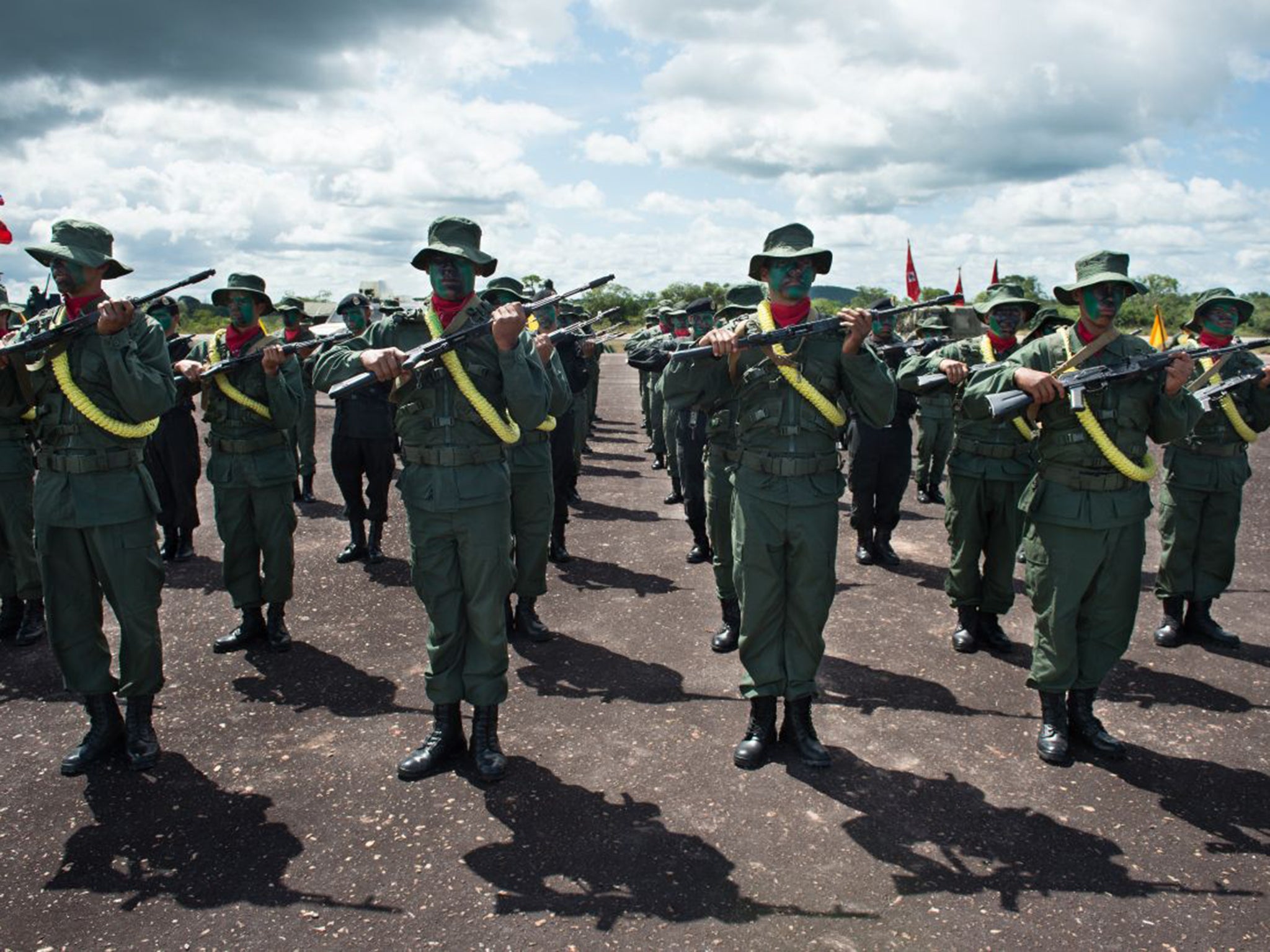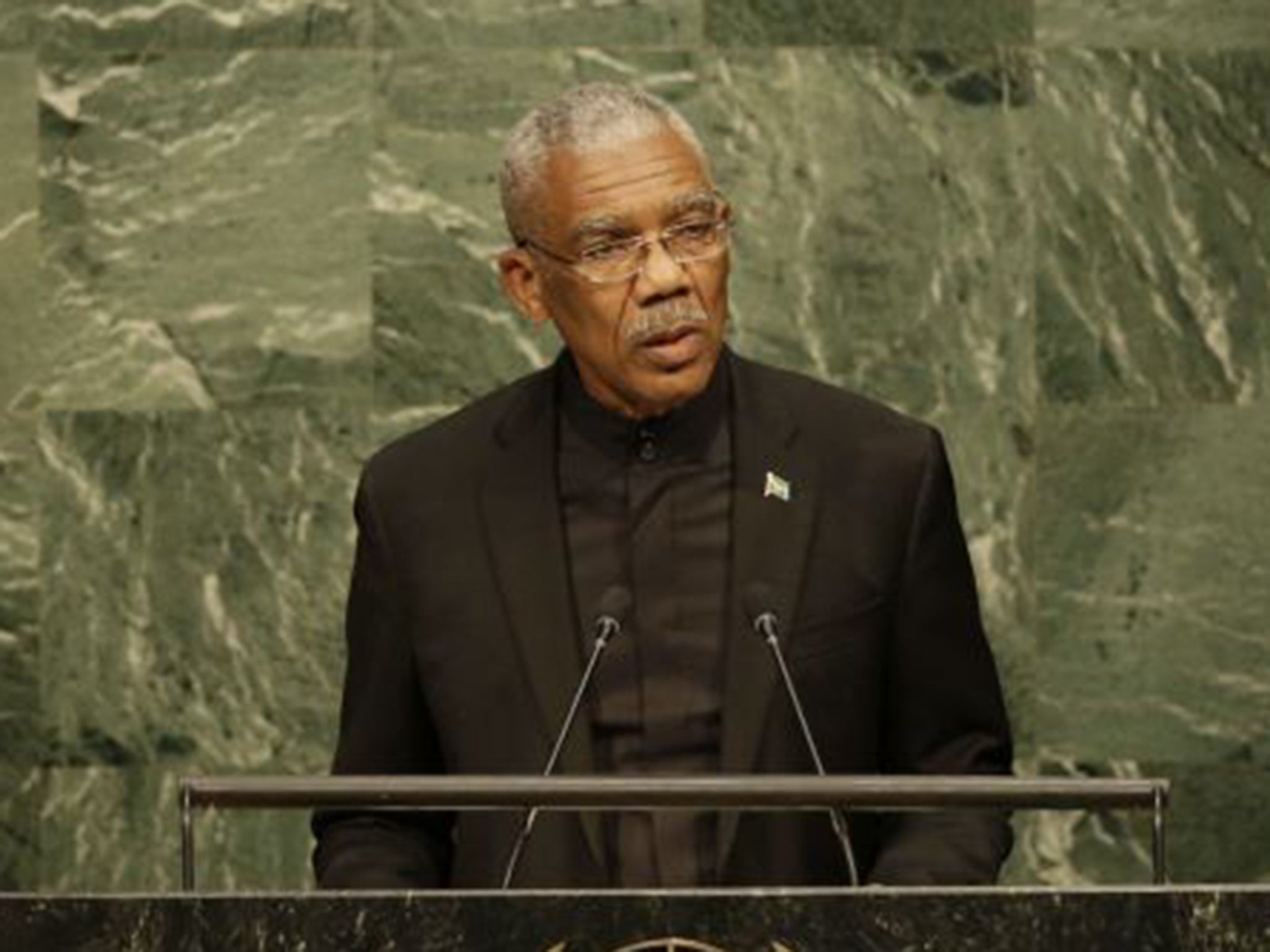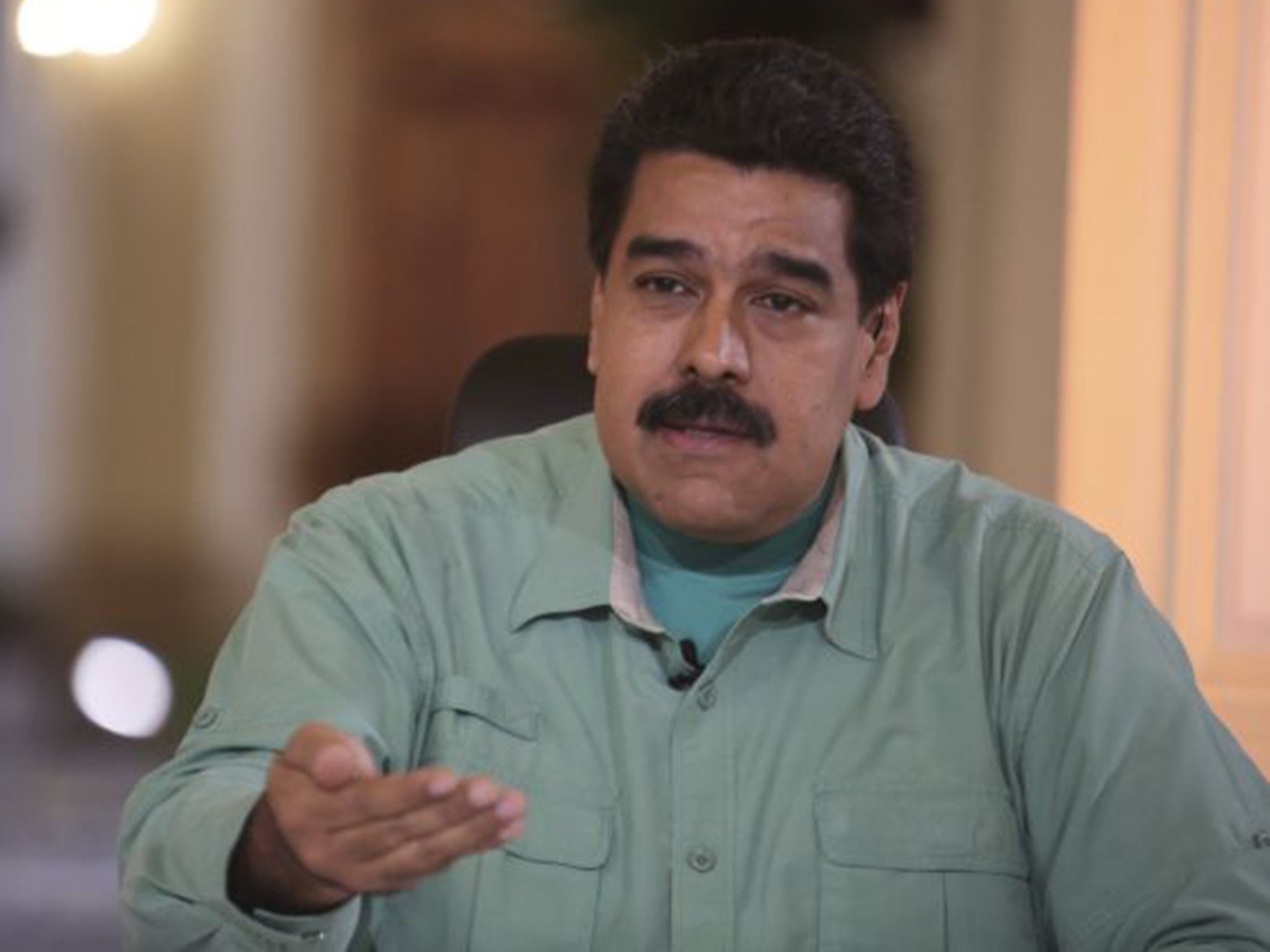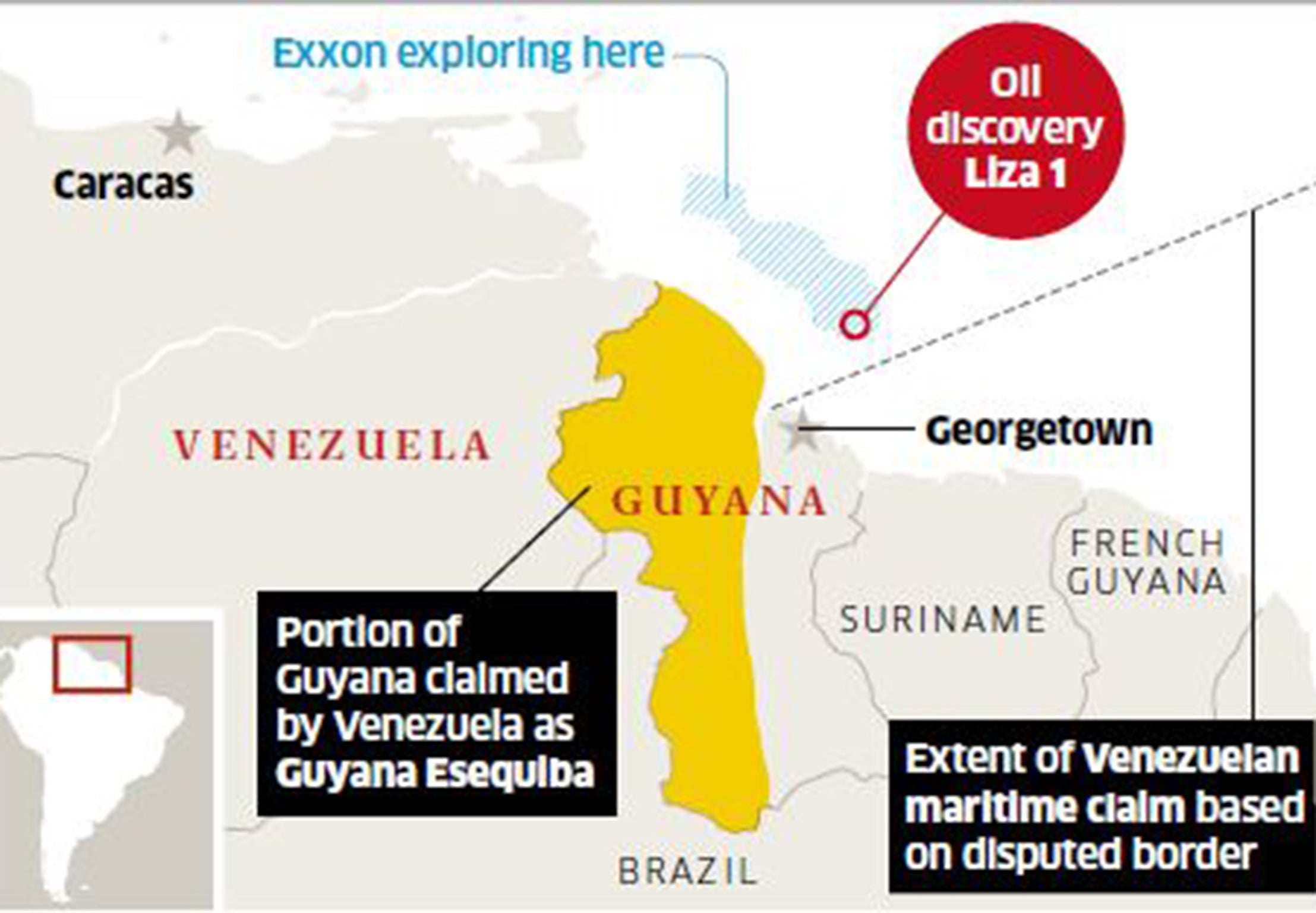Guyana and Venezuela in bitter border dispute after oil discovery
A bitter row with Venezuela that goes back over a century and nearly started a war is being taken to the United Nations

Your support helps us to tell the story
From reproductive rights to climate change to Big Tech, The Independent is on the ground when the story is developing. Whether it's investigating the financials of Elon Musk's pro-Trump PAC or producing our latest documentary, 'The A Word', which shines a light on the American women fighting for reproductive rights, we know how important it is to parse out the facts from the messaging.
At such a critical moment in US history, we need reporters on the ground. Your donation allows us to keep sending journalists to speak to both sides of the story.
The Independent is trusted by Americans across the entire political spectrum. And unlike many other quality news outlets, we choose not to lock Americans out of our reporting and analysis with paywalls. We believe quality journalism should be available to everyone, paid for by those who can afford it.
Your support makes all the difference.It is a border dispute that over the past century has nearly provoked a war between the US and Britain, started arguments over oil and even managed to involve Google Maps.
In the latest in the row between Guyana and Venezuela, there were military exercises from both countries in recent days – essentially a spot of sabre-rattling ahead of an expected meeting between the presidents of the two nations at the UN General Assembly in New York this week.
Venezuela has long claimed a huge tract of land known as the Essequibo, which comprises nearly 40 per cent of Guyana’s current territory, much to the chagrin of the smaller nation. UN officials hope to take the sting out of the altercation by brokering a deal between Venezuela’s President Nicolas Maduro and Guyana’s President David Granger, but history suggests it won’t be that simple.

President Granger, who accused his opposite number of pursing an “offensive and aggressive course”, has previously rejected offers of UN mediation and says he wants the border question settled by the International Court of Justice.
The bad blood goes back a long way. In the 19th century, Venezuela disputed a claim by Britain – Guyana was a British colony at the time – as to exactly where the division between the two nations lay. The line, known as the Schomburgk Line, is named after German explorer Robert Schomburgk, commissioned by Britain in 1835 to conduct a geological survey of the territory.
It was during the diplomatic spat between Venezuela and the UK that the US government, which backed Venezuela, threatened war on London if it refused to retract its claims to the territory. War was averted by an agreement to have the dispute settled by international arbitration.
The 1899 tribunal decision appeared to settle the dispute between Venezuela and Guyana and a commission of officials from both countries thrashed out the details of the boundary in 1905. However, the 1949 publication of a memorandum written by a US lawyer who acted for Caracas sparked a new controversy. The lawyer claimed the tribunal result had favoured Britain’s claims as a result of alleged corruption and collusion between London and the Russian chair of the tribunal.

Decades later, the discovery of oil off the coast of Guyana led to Venezuela reiterating its land claims, and then this summer, extending them out to sea – leaving Guyana effectively landlocked. Venezuela’s anger was stoked further by the fact the discovery was made by a subsidiary of US oil firm Exxon Mobil. President Maduro has described his Guyana counterpart as a “hostage” of the company. Venezuela already sits on some of the world’s largest oil supplies. Guyana, however, is one of the poorest countries in the region, second only to Haiti in terms of GDP.
Since the oil discovery was announced, political rhetoric between Caracas and Georgetown has intensified, in addition to a round of commercial tit-for-tats with Guyana halting the purchase of oil from its neighbour and Venezuela sourcing its rice supplies from elsewhere.
Earlier this month, Guyana’s Foreign Minister Carl Greenidge said that the Anglophone nation would ask Google to remove from its maps service the Spanish-language labelling of street names in the disputed region of Essequibo.
Last week, Venezuela Defence Minister Vladimir Padrino confirmed its armed forces were conducting military exercises in the east of the country, near the Guyana border. “I call on the people of Venezuela to stay calm because we are seriously preparing ourselves,” he said in a TV broadcast.

President Granger said the “extraordinary military activity in eastern Venezuela” was a “hostile and aggressive” move, accusing Venezuela of massing troops on the border. This weekend his government responded by conducting military exercises of its own, including marches and parachute jumps.
Mr Granger reportedly said that “the Venezuela claims have scared away investors” from his country.
Venezuela recently used the military to close its border with Colombia. Mr Maduro’s critics claim he is using both border disputes to distract voters from economic problems ahead of elections this year.
Join our commenting forum
Join thought-provoking conversations, follow other Independent readers and see their replies
Comments